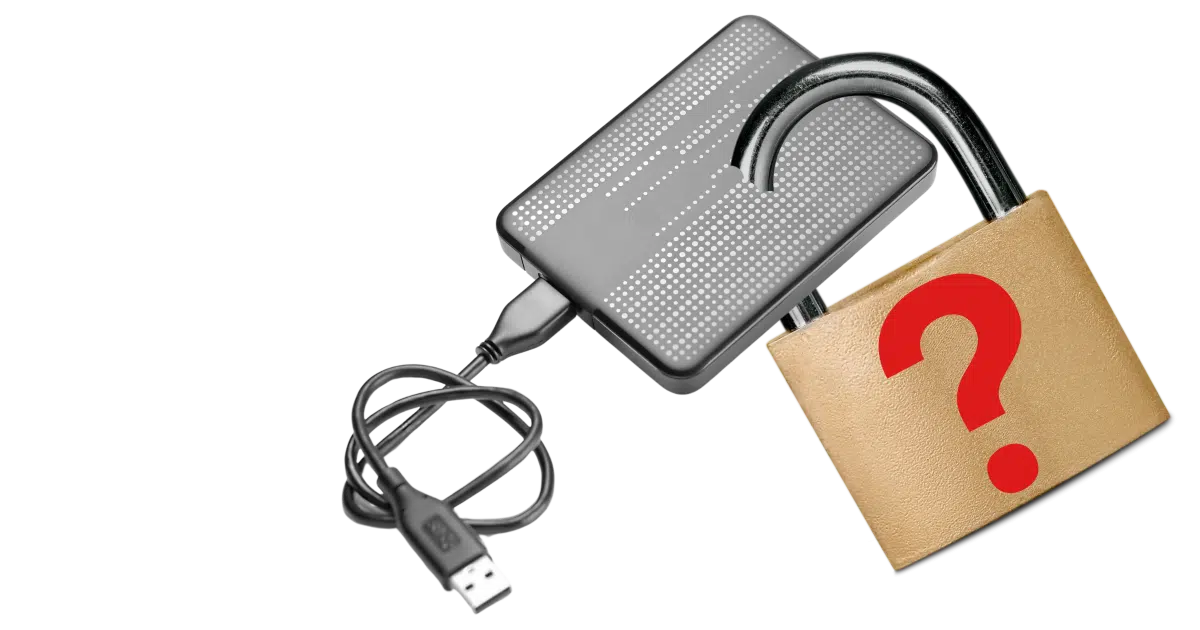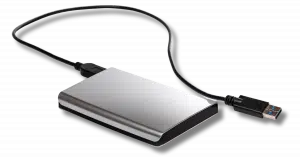Mostly because I’ve never heard of it, but also because there’s no need for it.

- Would you recommend using the password-protection and encryption tools that come with some external hard drives?
- Also, would it technically even be possible to use third-party tools like VeraCrypt on top of these for a double layer of protection?
- And if so, would you even recommend that?
- Which one would be more secure and why?
I usually avoid the third-party tools that come with external drives, though I do have a couple of exceptions.
Securing the data in an external drive is important. To me, that means two things: first, understanding the tools we’re using; and second, not going overboard.

Included encryption tools?
Stick with well-known encryption tools like VeraCrypt or BitLocker rather than the random software that comes with external drives. Unless the included software unlocks special hardware features, it’s not worth the risk. Double encryption is overkill; pick one trusted tool and back up your data instead.
Included software
I rarely recommend the software (backup, encryption, whatever) that comes with external drives. More often than not, it’s software I’ve never heard of with an unknown reputation. Since there are well-known alternatives, there’s no reason to use it.
I do, of course, have exceptions.
- If your drive comes with a tool you recognize and might well have selected yourself, there’s no reason to bypass it. Check to see if it’s a “free trial”, meaning that eventually it’ll require payment. If that’s not part of your plan, then look for alternatives, including a truly free version from the same vendor.
- If the software unlocks some specific hardware capability, consider it. For example, maybe there’s on-disk encryption hardware that the accompanying software can make use of for more effective or faster encryption and decryption.
But in most cases, I choose a solution I’m already aware of and familiar with.
Help keep it going by becoming a Patron.
Belt and suspenders
It’s not that uncommon to be using two levels of encryption and not realize it. For example, if you place an encrypted zip file or use an encryption tool on a file on any hard disk that is using whole disk encryption, you’ve got two levels of encryption: the tool you’re using plus the whole-disk encryption.
Depending on the tool that came with the hard drive, the result might be the same.
But it does seem like overkill if you’re intentionally encrypting everything twice for no real reason. I could see it making things a little more fragile. In any case, make sure your data is backed up somehow.
Ultimately, I don’t recommend double encryption unless it’s a side effect of encrypting things one way for one reason (like full-disk to protect everything on the disk) and also encrypting things another way for a different reason (say using Cryptomator to encrypt files that are copied to the cloud).
My recommendation
My preference when it comes to security backup, and encryption software — any software providing an important level of protection — is to use known tools. The only exception is if the software enables something that’s hardware-specific.
Known software like Veracrypt or Bitlocker has known characteristics and is generally more secure than random software that comes with an external hard drive. This is too important to leave to chance.
I suppose doubling up could technically be more secure, but it’s not worth it. Instead, choose a reputable single tool.
Do this
Consider these questions to make sure you’re securing your data to an appropriate level for your situation.
Subscribe to Confident Computing! Less frustration and more confidence, solutions, answers, and tips in your inbox every week.


